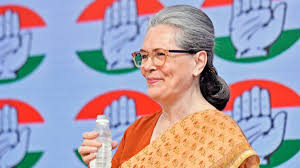In any democracy, the opposition plays a crucial role in scrutinizing government legislation, ensuring checks and balances, and representing alternative viewpoints. In 2025, several key bills passed or proposed by the government have sparked significant debate, with the opposition raising concerns and demands. Here’s an overview of the opposition’s stand on some of the major bills:
1. Farm Laws and Agricultural Reforms
- Opposition’s View: Many opposition parties have criticized recent agricultural reforms, arguing that these laws favor big corporations at the expense of small farmers. They claim the laws threaten the Minimum Support Price (MSP) system and leave farmers vulnerable.
- Demands: Repeal or major amendments to protect farmers’ interests, stronger MSP guarantees, and enhanced support infrastructure.
2. Digital and IT Regulation Bills
- Opposition’s View: Bills regulating digital content and social media have been criticized for potentially curbing freedom of expression and enabling government overreach.
- Demands: More transparency, clearer definitions, and safeguards to protect free speech and privacy rights.
3. Labour Code Reforms
- Opposition’s View: While some support the intent to simplify labour laws, many opposition leaders argue that the new labour codes dilute worker rights and reduce protections.
- Demands: Stronger worker benefits, enhanced social security, and inclusive consultations with trade unions.
4. Environmental and Climate Legislation
- Opposition’s View: The opposition has welcomed initiatives for sustainability but has raised concerns about the implementation and the impact on local communities and workers.
- Demands: More participatory policymaking, better compensation for displaced workers, and strict environmental safeguards.
5. Financial and Taxation Bills
- Opposition’s View: Bills introducing new taxes or financial regulations have sometimes been met with skepticism, with concerns over their impact on small businesses and the informal sector.
- Demands: Fair taxation policies, relief for small enterprises, and transparent use of tax revenues.
Conclusion
The opposition continues to play a vigilant role by raising critical questions and demanding accountability on key legislative changes. Their stand reflects concerns about inclusivity, transparency, and protecting vulnerable groups, ensuring that the democratic process remains balanced and robust.
































































